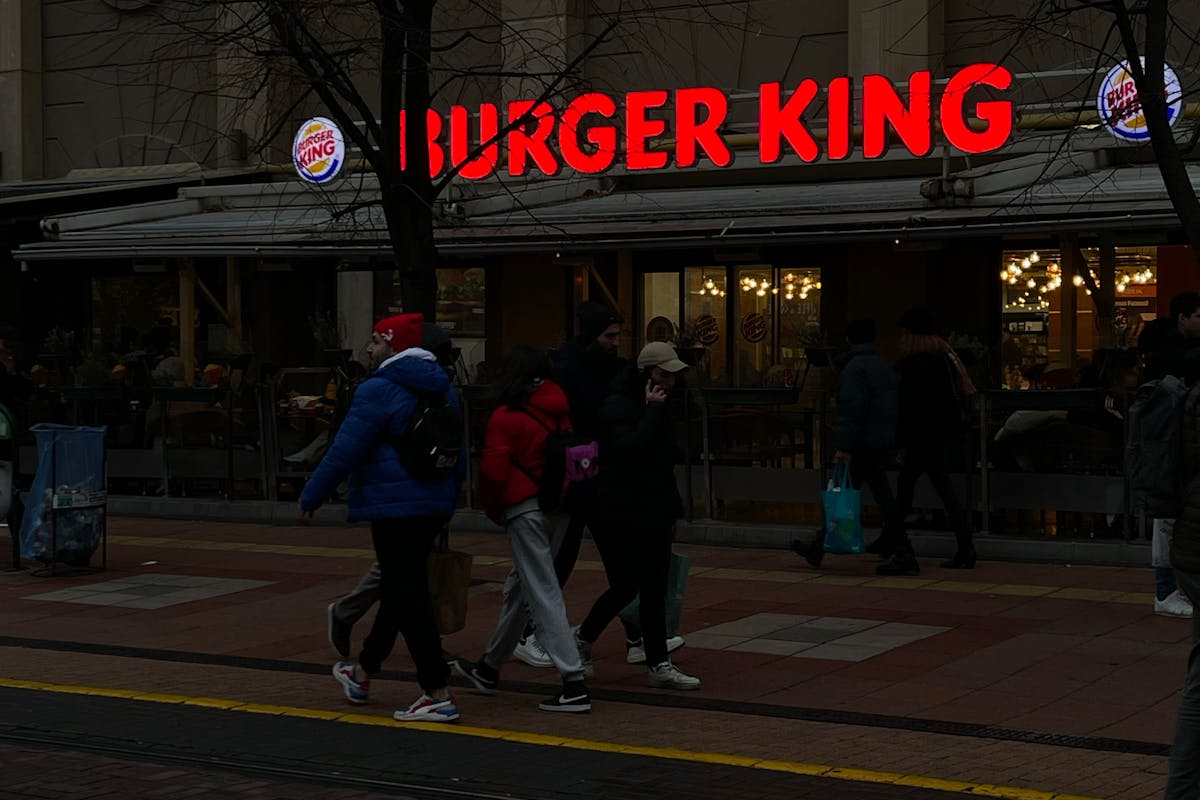Burger King Cashier Sues for Unpaid Wages and Retaliation
In a recent legal development, a Burger King cashier has accused the renowned fast-food chain of wage theft and retaliation, invoking her rights under the Fair Labor Standards Act (FLSA). This case, which underscores the pervasive issue of wage exploitation and poor treatment of low-wage workers in the fast-food industry, could potentially set a significant precedent for future labor disputes. As the lawsuit progresses, one can’t help but wonder about the implications this will have on labor practices and protections for employees within this sector.
The Unfolding Legal Battle
In what is becoming a heated legal dispute, a Burger King cashier has instigated a lawsuit against the fast-food giant for alleged unpaid wages. This ongoing conflict has, in its wake, left behind considerable legal implications. The plaintiff, whose identity remains undisclosed, claims Burger King deliberately failed to pay her overtime compensation, a direct violation of the Fair Labor Standards Act.
The legal implications of such a case are far-reaching. Should the plaintiff succeed, it could set a precedent for similar cases in the fast-food industry, potentially ushering in a wave of lawsuits from employees seeking recompense for unpaid wages. This would not only burden the industry with financial setbacks but also lead to a significant shift in the way it views and treats employee rights.
It is essential to note the role of employee rights in this situation. The lawsuit underscores the necessity for businesses to respect and uphold these rights, which include receiving fair compensation for labor. The case serves as a stark reminder that employee rights, often overlooked in the fast-paced world of fast food, remain a cornerstone of fair employment practices. The outcome of the dispute will undeniably have a profound impact on the industry, its employees, and the interpretation of labor laws.
Understanding Wage Theft
To fully comprehend the ongoing litigation faced by the Burger King cashier, it is essential to understand the concept of wage theft, which forms the crux of the issue. This involves an exploration of wage theft’s definition, the potential ramifications for both employees and employers, and measures that can be taken to prevent it. By doing so, we can gain a nuanced perspective of the legal, ethical, and practical aspects of this significant labor rights concern.
Defining Wage Theft
Delving into the concept of wage theft, it’s important to clarify what this term encompasses. It refers to the denial of wages or employee benefits rightfully owed to an employee. This can occur in various forms, violating wage regulations and infringing on employee rights.
Wage theft can manifest as failure to pay overtime, paying less than the minimum wage, illegal deductions from wages, employee misclassification, or simply not paying an employee at all. It’s a pervasive issue that seeps into various industries and affects both high- and low-wage workers.
Despite clear wage regulations, employers may exploit the lack of enforcement or the unawareness of their employees to engage in wage theft. This is largely seen in sectors where workers are less likely to be aware of their rights or less able to assert them. Employee rights, including the right to fair pay, are fundamental and protected by law.
Consequences of Wage Theft
Beyond the immediate financial implications for the affected employee, wage theft carries broader economic and social consequences. It exacerbates income inequality and economic instability, especially among low-wage workers, who are disproportionately affected. Wage theft can lead to a cycle of poverty, as workers struggle to meet basic needs and face increased vulnerability to financial shocks.
At the heart of wage theft is worker exploitation. Employees, particularly those in low-wage sectors, are often reliant on their employers for their livelihood and may feel powerless to challenge unfair practices. This exploitation can perpetuate a culture of fear and silence, which further emboldens employers to continue such practices.
In addition, the prevalence of wage theft can undermine trust in the labor market. Workers may become disillusioned, believing that their efforts are not rewarded fairly. This can lead to decreased productivity and morale, which in turn affects business performance and the economy as a whole.
Legal remedies exist to address wage theft, including suing the employer for unpaid wages and seeking damages. However, these remedies often require resources, time, and legal expertise that many affected workers do not have. Additionally, even when workers do pursue legal action, there is no guarantee of success, adding another layer of uncertainty and hardship.
Prevention of Wage Theft
While the implications of wage theft are grim and far-reaching, the key to mitigating this issue lies in its prevention. It is imperative that both employers and employees understand the gravity of wage theft and the consequences it holds for all parties involved.
Prevention strategies must primarily focus on promoting transparency and awareness about employee rights and wage regulations. This includes ensuring that all employees are educated about their rights to fair pay and the legal penalties for wage theft. Employers, on the other hand, should be guided by strict compliance to wage regulations.
Furthermore, businesses must establish robust payroll systems that prevent wage theft. Regular audits of payroll practices can help identify and rectify discrepancies promptly. It’s also essential to foster a culture that encourages employees to report wage theft without fear of retaliation, thereby ensuring a safe and fair working environment.
Moreover, the government plays a significant role in the prevention of wage theft. Strict enforcement of labor laws, regular inspections of businesses for compliance, and severe penalties for wage theft are necessary measures to deter potential violators.
Allegations of Retaliation
As we further scrutinize the case of the Burger King cashier, it is essential to examine the allegations of retaliation that have surfaced. Workplace retaliation, defined as adverse actions taken by employers against employees who have exercised their rights, has emerged as a key point in this unpaid wages dispute. This discussion aims to scrutinize the evidence and possible motivations behind these allegations to provide a thorough understanding of the situation.
Defining Workplace Retaliation
Workplace retaliation emerges when an employer punishes an employee for engaging in legally protected activity. This punitive action may take various forms, such as demotion, termination, salary reduction, or job or shift reassignment. It is essential to note that federal law protects employees from retaliation, framing it as a violation of workplace rights.
Understanding the intricacies of retaliation is crucial to maintaining a healthy work environment. The Equal Employment Opportunity Commission (EEOC) defines retaliation as any adverse action an employer takes against an employee because they lodged a complaint about discrimination or participated in workplace investigations. This definition emphasizes employee protections, highlighting the importance of safeguarding the rights of employees.
In the context of the Burger King case, retaliation allegations may involve actions taken by the employer post the employee’s complaint about unpaid wages. However, proving retaliation requires demonstrating that the employer’s action would deter a reasonable person in the same situation from making a complaint. Such a situation underscores the importance of understanding the nuances of workplace retaliation and the legal protections available to employees.
Unpaid Wages Dispute
In the heart of the unpaid wages dispute, allegations of retaliation have surfaced, adding another layer of complexity to the case. What seemed initially as a straightforward claim of wage denial has now evolved into a multi-faceted legal battle, with the plaintiff accusing Burger King of not only violating labor rights, but also retaliating against her for raising these issues.
The crux of the lawsuit is the alleged failure of Burger King to pay the cashier the minimum wage, a fundamental aspect of labor rights. The plaintiff argues that she was remunerated below the legally mandated minimum wage, thereby facing financial hardship. This non-compliance with labor standards, if proven, could lead to significant penalties for the fast-food giant.
The retaliation allegations further escalate the dispute. The cashier claims that after voicing her concerns about the wage issue, she encountered a hostile work environment which she perceives as retaliation for her complaint. This accusation, if substantiated, could have serious implications on the company’s reputation and employee morale.
This case underscores the importance of adhering to labor laws and the potential consequences for employers if they fail to do so.

Implications for Fast-Food Workers
The lawsuit filed by a Burger King employee for unpaid wages has far-reaching implications for workers in the fast-food industry. The case underscores the necessity for fast food unions and the power of worker solidarity in securing fair labor practices. It also highlights the vulnerability of these workers to wage exploitation, given the industry’s structural characteristics such as low wages, limited access to benefits, and job insecurity.
While the lawsuit is specific to one employee, it resonates with larger, systemic issues prevalent in the fast-food industry. It could potentially catalyze collective action, inspiring other fast-food workers to demand fair compensation and protection against retaliation. The consolidation of fast food unions and the mobilization of worker solidarity could be critical in challenging industry norms and effecting lasting change.
Furthermore, the case may also prompt regulatory scrutiny, necessitating reforms in labor laws to protect fast-food workers better. Such changes could include stricter enforcement of wage laws, increased penalties for labor violations, and improved provisions for dispute resolution.
Burger King’s Corporate Response
Burger King’s corporate response to the lawsuit has been met with keen interest, as it will set a precedent for similar cases in the fast-food industry. The corporation has been under scrutiny for its possible role in the wage dispute, with questions arising about corporate accountability and franchise responsibilities.
The corporate response can be broken down into four key points:
- Burger King has stressed that each franchise is independently owned and operated, suggesting a limit to corporate oversight on wage issues.
- There is a commitment to cooperate fully with any investigation, emphasizing their dedication to ethical business practices.
- The corporation has pledged to retrain franchise owners on proper wage protocols, indicating a pro-active stance on preventing future issues.
- Burger King has taken a defensive position, asserting that it is not responsible for the wage decisions made by individual franchises.
The response aims to balance corporate accountability with franchise responsibilities. It’s clear that Burger King is working to maintain its industry reputation while addressing the serious allegations brought forward in the lawsuit. This case shines a spotlight on the complexities of wage disputes within franchised businesses.
Legal Precedents in Wage Cases
As we turn our attention to the broader context of wage cases, it becomes necessary to examine the legal precedents set in similar situations. Multiple cases have reinforced the importance of wage equity and labor rights in the United States. Courts have consistently upheld that employers have a legal obligation under the Fair Labor Standards Act (FLSA) to pay their employees for all hours worked, including overtime.
One notable example is the case of Donovan v. Burger King Corp in the 1980s. The court ruled in favor of the employees, citing the employer’s violation of minimum wage and overtime provisions. This case serves as a reference point for instances where employers fail to honor their wage commitments, reinforcing the necessity of wage equity and labor rights.
In the 2004 case of Schultz v. Capital International Security, Inc., the court held the employer accountable for unpaid overtime, further strengthening labor rights. These cases underscore the legal expectation for employers to fulfill their wage obligations, which is essential in the current Burger King case.
These precedents suggest a legal landscape that is increasingly intolerant of wage violations, enhancing the prospects for employees seeking redress for such grievances.
Impact on Public Perception
While it is the courts that will ultimately decide the legal merits of this wage dispute, it is essential to reflect on the impact this case could have on the public’s perception of Burger King. Public opinion is shaped by many factors, and allegations of mistreatment or unfair practices can greatly alter consumer trust.
- Brand Reputation: Public opinion can be heavily influenced by the ethical standards a company upholds. A lawsuit over unpaid wages can tarnish Burger King’s reputation and potentially result in a decrease in patronage.
- Consumer Trust: Trust is a key element in the relationship between a brand and its customers. When consumers perceive a company as treating its employees unfairly, it may erode their trust and loyalty to that brand.
- Media Coverage: The way this case is portrayed in the media could further impact public opinion. Negative press can compound the damage to Burger King’s image.
- Consumer Action: In an era of socially conscious consumerism, many consumers may choose to boycott Burger King as a form of protest against what they perceive as unjust treatment of employees. This could lead to a considerable loss in revenue for the company.
Future of Workers’ Rights
The lawsuit brought forth by the Burger King cashier is emblematic of a larger, ongoing struggle for workers’ rights in the fast-food industry. This struggle is not only about unpaid wages, but extends to issues of worker empowerment, fair compensation, and employee advocacy.
The rise of labor movements across the industry signifies a concerted push towards securing these rights. Through collective bargaining, workers are challenging the status quo, demanding better working conditions, and fair compensation for their labor. Worker empowerment, in this sense, becomes a critical tool in ensuring that employees are not only heard but also effectively represented in their pursuit of justice.
The emergence of the gig economy has further complicated the landscape. Gig workers, who are often categorized as independent contractors, are typically exempt from many of the protections afforded to traditional employees. This has sparked a renewed debate about the definition of employment and the scope of workers’ rights.
The future of workers’ rights will largely depend on the ability of labor movements and employee advocacy groups to navigate this complex landscape. It will also hinge on the willingness of corporations to acknowledge and address these pressing issues. The outcome of the Burger King lawsuit may well set a precedent for similar cases in the future.
Frequently Asked Questions
How Long Was the Cashier Employed at Burger King Before the Lawsuit?
The employment duration of the cashier prior to the lawsuit is not specified in the query. Understanding this duration is essential as it may have significant legal implications in the context of the alleged unpaid wages and retaliation.
What Is Burger Kings Standard Pay Rate for Cashiers?
Burger King’s standard pay rate for cashiers typically aligns with the federal minimum wage. However, the rate can vary based on location and tenure, considering the differing state laws and company policies in the fast-food industry.
Has the Cashier Found Employment Elsewhere Since Leaving Burger King?
The cashier’s job search post-Burger King is unclear. However, potential employers may be cautious due to the ongoing legal implications of her lawsuit. Consequently, her employment status remains uncertain at this current time.
Did Any Other Burger King Employees Join the Cashiers Lawsuit?
Regarding employee experiences and wage fairness, it’s currently unclear whether other Burger King employees have joined the cashier’s lawsuit. Further investigation is required to provide an extensive answer to this query.
Are There Any Other Ongoing Lawsuits Against Burger King Regarding Wage Theft or Retaliation?
Currently, there are multiple ongoing lawsuits against Burger King, alleging wage theft and violation of employee rights. These cases highlight an escalating concern over fair pay and retaliation issues within the quick-service restaurant industry.






